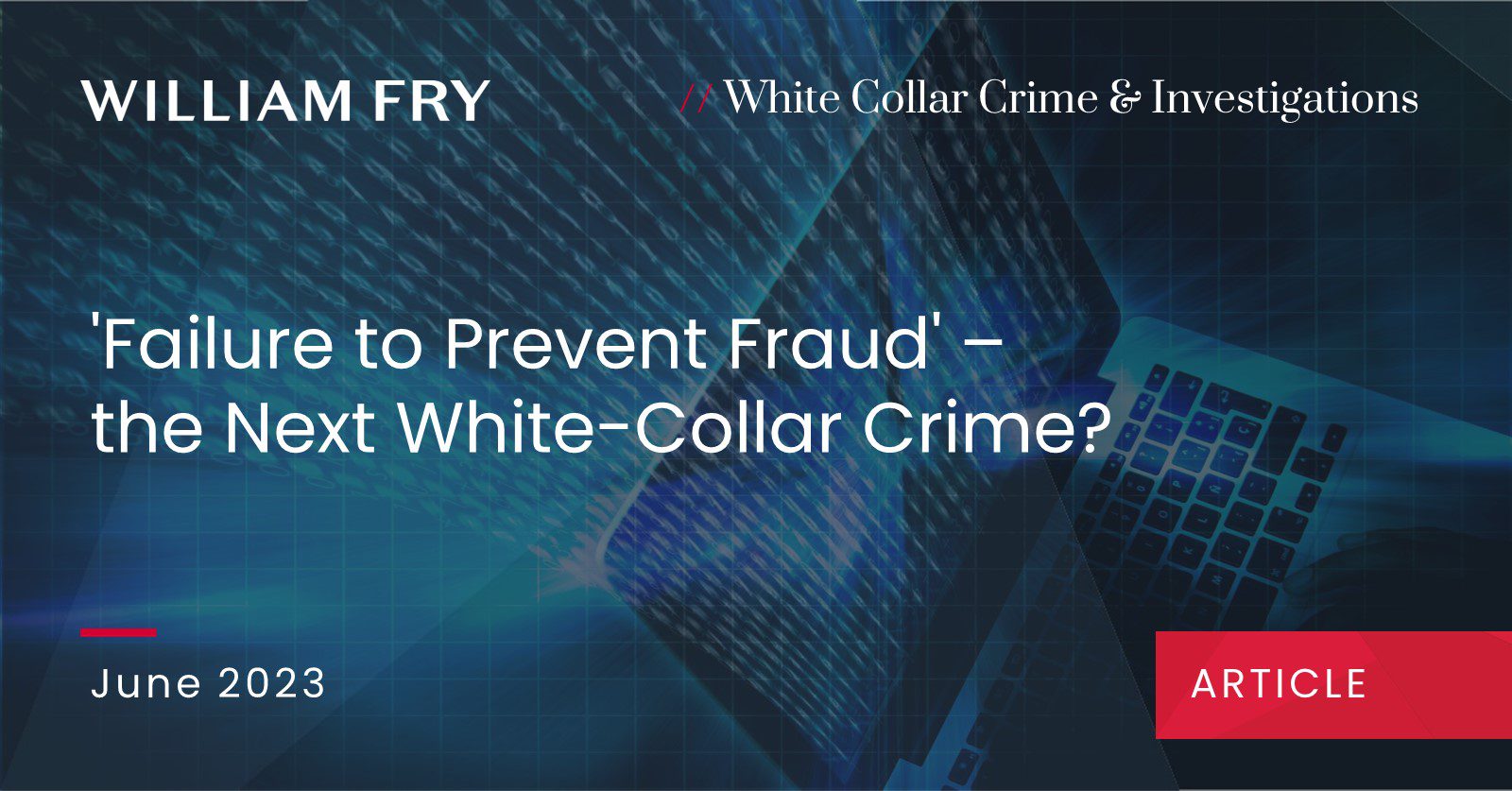There are, typically, no issues with Irish Courts finding companies liable for strict, absolute and vicarious liability offences where appropriate as it does not have to be proved that the company possessed the requisite mental intent to commit the offence.
For example, where a company fails to submit an annual return, absolute liability is imposed by section 343(11) of the Companies Act 2014. It is not necessary to show wrongful intent or negligence on the part of the company in not submitting the annual return.
However, as highlighted by the Law Reform Commission (LRC) in its Report on Regulatory Powers and Corporate Offences 2018 (Report), there is considerable uncertainty as to the test that applies in determining if a company, being a collective entity, is criminally liable for ”more personal” subjective fault offences, such as fraud. This is because it must be proved that the company possessed the requisite mental intent to commit the offence.
In the UK, the government has signalled its intention to address this issue by introducing a new “failure to prevent fraud” offence. It will add to the legislative suite of existing offences in the UK to tackle white-collar crime, including “failure to prevent bribery” and “failure to prevent the facilitation of tax evasion”. The new offence will seek to close loopholes allowing companies to avoid prosecution by imposing criminal liability on large companies where an employee or agent commits a prescribed fraud offence for the company’s benefit and the company did not have reasonable fraud prevention procedures in place. It will not have to be shown that the directors, managers or senior officers knew about the fraud.
In Ireland, there is no equivalent “failure to prevent fraud” type offence. The only similar type of offence that currently exists in Ireland is the failure to prevent fraud affecting the financial interests of the EU, such as VAT fraud. In the Report, the LRC recommended the introduction of a new offence of “failure to prevent criminal activity”, whereby a company would be held criminally liable for cultural or organisational failings in its systems or policies which resulted in criminal activity, where that activity was carried out for the benefit of the company or for the benefit of a client or relevant person (defined as a director, manager, secretary or other officer, a person purporting to act in that capacity, a shadow director or an employee, agent or subsidiary).
The LRC recommended that the provisions should only be available on a case-by-case basis as an alternative to strict liability offences, where securing a conviction against the company or its directing minds for the substantive offence is not possible. The LRC also recommended that it would be a defence to prove that the company took all reasonable steps and exercised all due diligence to prevent the relevant criminal offence. If adopted, such an offence would capture fraudulent activity.
It is notable that there has been a significant increase in fraud crime since the Report was published in 2018, particularly over the course of the Covid-19 pandemic. The Central Statistics Office reported a 43% increase in fraud and related offences in the 12 months between June 2021 and June 2022.
Although the recommendations in the Report have not yet been actioned, the introduction of a new “failure to prevent fraud” offence in the UK, together with the reported increase in fraud crimes in recent years, may remotivate the Irish legislature to consider the introduction of a similar offence in this jurisdiction.
For more insights into legal developments in the field of white-collar crime as well as details of our extensive expertise in this area, please visit our White Collar Crime & Investigations webpage here or contact Paul Convery, Sarah Twohig or your usual William Fry contact.
Contributed by Orla Trant




